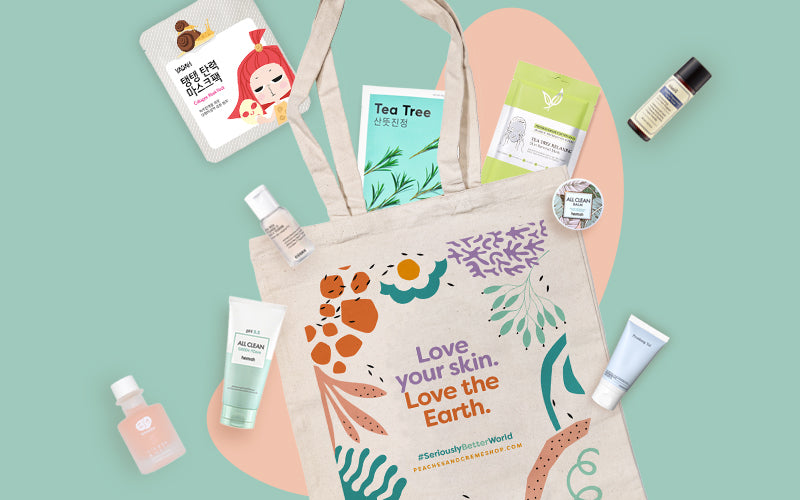Skincare 101: What ingredients to mix and not mix
We’ve all been there—buying new, well-reviewed skincare yet failing to achieve results. Sometimes, you can even come across products that actually worsen your skin problems, leading to questions like “what went wrong?” and “were they lying?” And while some skincare products may really not be compatible with your skin, it may also boil down to what ingredients you’re layering.
Combining ingredients that are not supposed to be mixed together is a common mistake, especially when you're just starting on your skincare journey. With so many products out there and many, many promises of better skin, it can get really confusing—so we're here to help. If you want to begin with a simple cheat sheet on what ingredients to mix and not mix, keep scrolling!

Retinol
A type of retinoid, retinol is a rising star in the world of skincare. It helps you get rid of dead skin, texture, dark spots, and acne. Retinol is also fantastic in tightening pores and decreasing the oiliness of your skin.
Works well with:
- Hyaluronic acid
While retinol may seem like a skincare holy grail, it may cause or worsen dry skin which is why it’s best to pair it with ingredients that hydrate and moisturise. Hyaluronic acid is perfect for this since it soothes your skin without getting in the way of retinol.
We recommend putting on a light layer of hyaluronic acid serum or cream BEFORE retinol at night time.
- Peptide
Like hyaluronic acid, peptide is also moisturising and helps counter dry skin. It also helps improve the firmness of your skin when combined with retinol. Simply apply a peptide cream first and then put on just a pea-size amount of retinol.
- SPF
Retinol can unfortunately increase the sensitivity of your skin against the sun, which is why it’s recommended to use it only at night and to stay on top of your sunscreen game.
Avoid mixing with:
- Vitamin C
Vitamin C is a great addition to your skincare routine but you should avoid layering it with retinol. The two ingredients do not mix well together since they can cancel out each other’s benefits—retinol promotes skin cell turnover while Vitamin C strengthens your skin barrier. It’s best to use Vitamin C in the morning and retinol before going to bed.
- Benzoyl peroxide
Mixing retinol with benzoyl peroxide is a big no-no! Aside from cancelling each other out, this combination may cause skin irritation. If you must, separate them by using benzoyl peroxide in the morning and retinol in the evening.
- AHAs/BHAs
Like your vitamin C, AHAs/BHAs (like salicylic acid) should not be combined with retinol. Exfoliants like these can worsen any skin dryness caused by using retinoids.
Vitamin C

When it comes to your morning skincare routine, vitamin C is key. Serums that contain this antioxidant help give you brighter skin and added protection against the sun. It also works to prevent sagging skin and lightens those pesky little dark spots.
Works well with:
- Vitamin E
You can say that vitamin C and vitamin E are a skincare power couple. Both prevent damage caused by free radicals AND they each protect you from different types of UV.
- Ferulic acid
Ferulic acid is a good ingredient to support your vitamin C, giving your skin extra boons: added protection against free radicals, skin damage prevention, and extended effectiveness of vitamin C.
🍑 IMPORTANT TIP! Mix vitamin C with BOTH vitamin E and ferulic acid for a special defense boost against the sun.
- SPF
You can think of vitamin C and sunscreen as Batman and Robin, Bonnie and Clyde, Peaches&Crème! These two skincare powerhouses should always be layered together as they complement each other and add an extra layer of protection that your skin needs against harsh UV rays.
Avoid mixing with:
- AHAs
Mixing vitamin C and AHA amounts to this: too much acidic ingredients and irritated skin. It’s best to use vitamin C in the morning and your exfoliants at night OR simply alternate using these acids every other night before bed during your non-retinol evenings.
- Benzoyl Peroxide
This skincare ingredient can leave vitamin C ineffective. If you’re prescribed benzoyl peroxide, simply use it at a different time of the day.
- High pH cleansers
Okay, so this is technically not a skincare ingredient but it’s still a good thing to know! High pH cleansers, especially soap-based ones used in the morning, can prevent your skin from absorbing vitamin C.
🍑 IMPORTANT TIP! The Vitamin C and Niacinamide together is a no-no, actually belief is a thing of the past. You can enjoy the benefits of these ingredients for your skin by choosing a skincare product that already combines the two OR by waiting 10 minutes in between the two and then applying the heavier product last.
Niacinamide
A form of vitamin B3, niacinamide is an antioxidant that offers a range of restorative and calming benefits for your skin: it brightens your complexion, calms and prevents breakouts, and evens out dark spots. Niacinamide is also gentle and compatible with almost all skincare ingredients.
Works well with:
- Salicylic acid
This combination is perfect for you if you have oily and acne-prone skin. Niacinamide helps reduce and control oil production. Salicylic acid, on the other hand, works to exfoliate and remove dirt, gunk, and/or impurities on your skin.
- Retinol
Niacinamide is a great pairing for retinol because it can help you achieve quicker results all while calming and/or mitigating any skin irritation and dryness that may have been caused by retinol.
- Centella asiatica
Niacinamide and this calming ingredient is the pairing to go for when you need to soothe irritated or sensitive skin. Centella asiatica is anti-inflammatory and can help clean your pores while niacinamide locks in hydration. Just think of using this pair as your skin’s Eat, Pray, Love moment.

Hyaluronic acid
Hydration is king—and when it comes to your skin, hyaluronic acid is the master of increasing and locking this in. While most individuals can benefit from the use of hyaluronic acid, it is best used for dry and/or mature skin types.
Works well with:
- Jojoba oil
The Jojoba-Hyaluronic pairing is a great combination for skincare beginners as they work well with most skin types and offer the least risk for skin irritation. This gentle duo is lightweight, hydrating, and non-oily.
- Vitamin C
If you’re looking to achieve healthier skin, then vitamin C + hyaluronic acid is your dream team. They complement each other to promote hydration, protection, and well-aging. Hyaluronic acid can also help avoid any dryness or skin tightening that may be triggered by using vitamin C.
- Salicylic acid
Salicylic acid penetrates deep into your pores to clear out dirt and impurities, which can sometimes cause dryness. Your hyaluronic acid then works to help draw in water and keep your skin moisturised. Get fresh, bouncy skin every day!
Avoid mixing with…
…Nothing! Like niacinamide, hyaluronic acid is actually safe to mix with most skincare ingredients. Gotcha. 🤗

We understand that it's easy to get pulled by the tide of what's new and trending—and there's nothing wrong with that! We wrote this blog only so we can help you avoid any potential irritation or over-exfoliation that may damage your skin. In the end, it all still boils down to what your skin needs. Every person is unique, and some skin types may actually tolerate layering strong acids and exfoliants like retinol, AHAs, and BHAs.
So don't be afraid to explore and get to know more about your skin. K-beauty actually gives you more freedom to do this because it is kinder to skin and formulated to be more gentle, soothing, and hydrating. Just remember to keep it safe by doing your own research and taking steps to ensure that you're carefully incorporating new products into your routine.
Have fun and enjoy mixing and matching your skin care, lovelies! ✨









Leave a comment